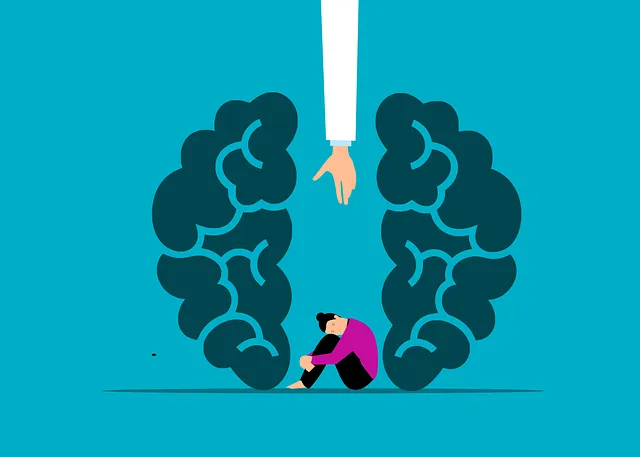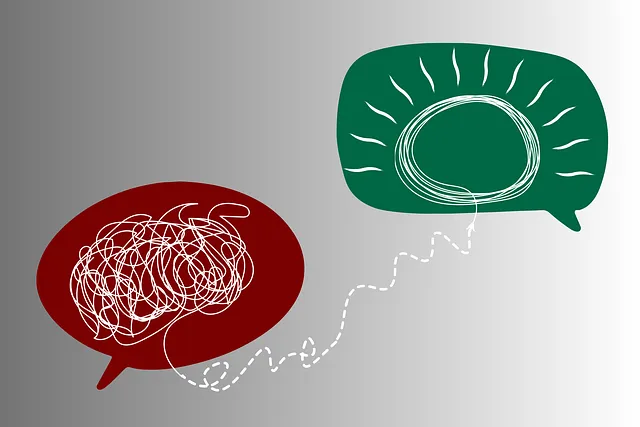Mental health conditions significantly impact social interactions, prompting Lakewood Kaiser Permanente (LKP) to offer tailored support through its comprehensive mental health coverage. LKP's Social Skills Training (SST) program equips individuals with improved communication and relationship-building skills, addressing challenges in various settings like workplaces and schools. This holistic approach, combined with Mental Health Policy Analysis and Stigma Reduction Efforts, enhances patient outcomes, protects healthcare providers from burnout, and fosters a supportive environment for recovery. SST, developed under the Mental Wellness Coaching Programs initiative, effectively aids those with anxiety and depression by teaching practical skills, thereby improving overall mental wellness under LKP's extensive coverage.
Social skills training is a powerful tool in addressing the challenges posed by mental health conditions, especially in enhancing social interactions. This article explores how structured programs can significantly improve outcomes for individuals struggling with various disorders. We delve into the impact of mental health on social relationships and examine case studies, such as Lakewood Kaiser Permanente’s approach, demonstrating effective integration of social skills training within healthcare settings. Furthermore, it provides practical strategies tailored to different mental health disorders, including those covered under Lakewood Kaiser Permanente’s mental health coverage.
- Understanding the Impact of Mental Health Conditions on Social Interactions
- The Role of Social Skills Training in Mental Health Treatment
- Integrating Social Skills Training into Healthcare Settings: A Case Study at Lakewood Kaiser Permanente
- Effective Strategies for Delivering Social Skills Training for Various Mental Health Disorders
Understanding the Impact of Mental Health Conditions on Social Interactions

Mental health conditions significantly shape an individual’s social landscape, often impacting their ability to navigate relationships and engage in meaningful conversations. Conditions such as anxiety disorders, depression, or bipolar disorder can lead to social withdrawal, making it challenging for individuals to connect with others. In many cases, these conditions manifest in physical symptoms, affecting communication and interaction, which can further isolate those affected. For instance, the nervous system’s response to stress in anxiety disorders might result in physical tremors or rapid heartbeat during social encounters, creating a barrier to participation.
The impact extends beyond the individual, as it influences their interactions within various settings, including workplaces, schools, and communities. This is where Lakewood Kaiser Permanente mental health coverage plays a pivotal role. By offering comprehensive mental health services, they enable individuals to access support tailored to their needs. Social Skills Training, a key component of these programs, equips people with the tools to enhance their social interactions. Community Outreach Program Implementation, such as group therapy sessions or workshops, fosters a sense of belonging and provides a safe space for practice. Moreover, Burnout Prevention Strategies for Healthcare Providers are essential in supporting those who support others, ensuring they have the resources to manage their own mental health while assisting others.
The Role of Social Skills Training in Mental Health Treatment

Social Skills Training plays a pivotal role in holistic mental health treatment, addressing a crucial aspect often overlooked – social interaction and communication. Many mental health conditions can impact an individual’s ability to navigate social situations, leading to isolation and exacerbating symptoms. This is where Social Skills Training comes into focus, offering a structured approach to enhancing these skills. At Lakewood Kaiser Permanente, under their comprehensive mental health coverage, such training programs are designed to empower individuals with the tools needed to engage socially, build relationships, and manage their mental well-being effectively in diverse environments.
Incorporating Social Skills Training as part of a patient’s treatment plan can significantly contribute to improved outcomes, especially when coupled with Mental Health Policy Analysis and Advocacy efforts. By reducing the stigma associated with mental illness through initiatives like Mental Illness Stigma Reduction Efforts, these training programs become more accessible and acceptable. Moreover, risk assessment for mental health professionals is enhanced by such interventions, fostering a supportive environment that facilitates better patient-therapist interactions and ultimately leads to successful recovery journeys.
Integrating Social Skills Training into Healthcare Settings: A Case Study at Lakewood Kaiser Permanente

At Lakewood Kaiser Permanente, a leading healthcare provider renowned for its comprehensive mental health coverage, Social Skills Training (SST) has been successfully integrated into treatment plans, offering patients valuable support in navigating social interactions. This innovative approach is particularly significant given the rising concerns about burnout prevention among mental health professionals and the public awareness campaigns development focused on destigmatizing mental illness.
The SST program at Lakewood Kaiser Permanente emphasizes cultural sensitivity in mental healthcare practice, ensuring that training is tailored to meet diverse patient needs. By incorporating role-playing scenarios, group discussions, and practical exercises, patients learn essential social skills to manage stress, communicate effectively, and build supportive relationships. This holistic approach not only enhances their overall well-being but also empowers them to actively participate in their recovery journeys.
Effective Strategies for Delivering Social Skills Training for Various Mental Health Disorders

Social Skills Training is an effective strategy for improving outcomes in various mental health disorders. For instance, programs designed under the Mental Wellness Coaching Programs Development initiative at Lakewood Kaiser Permanente have shown promise in enhancing social interactions for individuals with anxiety and depression. These sessions focus on teaching practical communication techniques, empathy building, and conflict resolution skills tailored to each client’s needs.
The Mental Health Education Programs Design approach emphasizes educating both clients and mental health professionals about the importance of social connections and coping strategies. This includes risk assessments (Risk Assessment for Mental Health Professionals) to identify potential barriers to social participation, allowing for personalized interventions. By combining training, education, and assessment, these programs aim to foster a supportive environment where individuals with mental health conditions can build resilience, improve relationships, and enhance their overall mental wellness.
Social skills training is a powerful tool in enhancing the lives of individuals with mental health conditions, as evidenced by the successful case study at Lakewood Kaiser Permanente. Integrating these programs into healthcare settings can significantly improve social interactions and overall well-being. By tailoring strategies to various disorders, as demonstrated for depression, anxiety, and schizophrenia, healthcare providers can offer targeted support. The effectiveness of social skills training, coupled with comprehensive mental health coverage like that provided by Lakewood Kaiser Permanente, underscores its potential to foster community reintegration and improved quality of life for those navigating these challenges.






